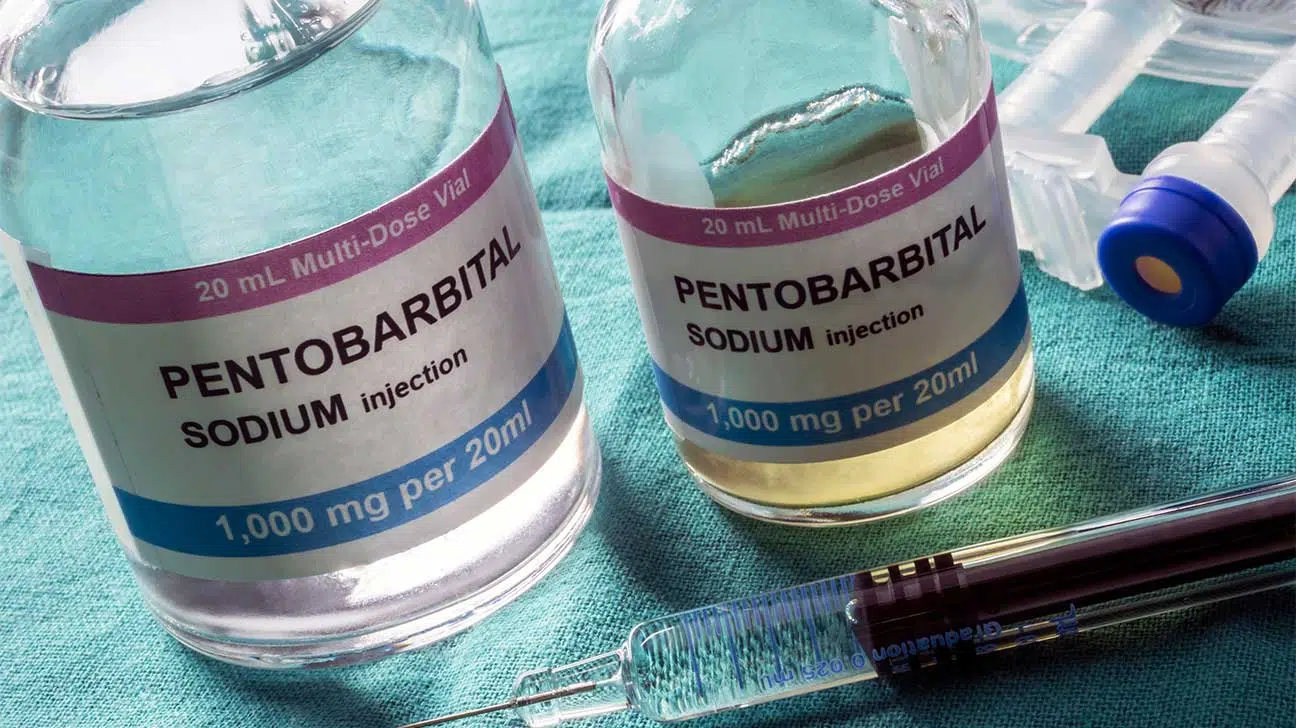
Phenobarbital is a barbiturate medication and a Schedule IV Controlled Substance.
This drug is prescribed to treat people detoxing from addiction, as well as a treatment for people who experience panic attacks and insomnia.
While phenobarbital misuse can quickly lead to physical dependence and addiction, it still has important medical uses.
Why Phenobarbital Is A Schedule IV Controlled Substance
Drugs and other substances are considered controlled substances if they carry a risk of physical dependence or addiction.
Phenobarbital can be habit-forming and addictive if abused, and is thus categorized as a Schedule IV controlled substance.
Addiction to phenobarbital can also be accompanied with physical dependence, which means a person will develop withdrawal symptoms if they suddenly stop taking the drug.
What Class Of Drug Is Phenobarbital?
Phenobarbital belongs to a class of drugs known as barbiturate anticonvulsants/hypnotics. It works by controlled electrical signals in the brain that occur during a seizure.
Phenobarbital is only intended to be used for short periods of time (typically no more than two weeks).
Is Phenobarbital Still Prescribed?
Though healthcare professionals still prescribe Phenobarbital for seizures, it is typically only given when other newer and safer seizure therapies are not working as intended.
There are also availability issues in pharmacies due to manufacturing discontinuations, and unavailability of certain strengths of the drug through distributors.
Other common barbiturates include pentobarbital, secobarbital, amobarbital, methohexital, barbital, and many more.
Effects Of Phenobarbital Abuse
Misusing phenobarbital may lead to several harmful behavioral and physical side effects.
Side effects may include:
- dizziness
- drowsiness
- headache
- loss of appetite
- nausea and vomiting
- memory loss
- depression
- agitation
- suicidal thoughts
Most people who take phenobarbital will not experience side effects, but those who do not use the drug as intended will have a much higher rate of mental and physical side effects.
Why Phenobarbital Misuse May Be Dangerous
When epilepsy drugs such as phenobarbital are abused, it can amplify the effects of other substances or prescription drugs and cause a fatal overdose.
Some of the most dangerous pharmacological phenobarbital combinations include:
- temazepam (Restoril)
- tramadol
- Xanax
- quazepam
- oxazepam
- Luminal
- methylphenidate (Ritalin)
- midazolam
- fenfluramine
- pentazocine
- meperidine
- methylphenidate
- hydromorphone
- carisoprodol
- clorazepate
- chlordiazepoxide
- amphetamine drugs
- buprenorphine
- hydrocodone
- ketamine
- fentanyl
- ethyl alcohol
- anabolic steroids such as methyltestosterone
Engaging in phenobarbital drug abuse while misusing prescription opioids such as oxycodone (OxyContin), codeine, fentanyl, or hydromorphone raises the risk of overdose death substantially.
Benzodiazepines and tranquilizers such as Xanax, Klonopin (clonazepam), and Valium (diazepam), may also pose dangers when mixed with phenobarbital.
In addition to the prescription drugs listed above, illicit Schedule I substances such as cannabis, methamphetamine, and heroin can also exacerbate the danger of overdose when combined with phenobarbital.
Treatments For Phenobarbital Abuse
If you or a loved one are currently addicted to phenobarbital or other substances, an evidence-based treatment program may be able to help.
Treatment options include:
- medication-assisted treatment (MAT)
- medically monitored phenobarbital detox
- individual, group, or family therapy
- cognitive behavioral therapy
- inpatient and outpatient care
- dual diagnosis treatment for co-occurring disorders
Drug rehab programs that feature such treatment services will help you overcome uncomfortable withdrawal symptoms and put you on the path to recovery.
Find Substance Abuse Treatment Services
For more information about phenobarbital abuse, call our helpline today. Our team can answer any questions you have about prescription drug addiction treatment options.
Addiction Resource aims to provide only the most current, accurate information in regards to addiction and addiction treatment, which means we only reference the most credible sources available.
These include peer-reviewed journals, government entities and academic institutions, and leaders in addiction healthcare and advocacy. Learn more about how we safeguard our content by viewing our editorial policy.
- U.S. Drug Enforcement Administration (DEA)
https://www.dea.gov/drug-information/csa - U.S. Food and Drug Administration (FDA)
https://www.accessdata.fda.gov/drugsatfda_docs/label/2009/019680s026lbl.pdf - National Institute of Health (NIH)
https://www.ncbi.nlm.nih.gov/books/NBK548377/ - National Institute of Health (NIH)
https://nida.nih.gov/publications/drugfacts/prescription-cns-depressants


